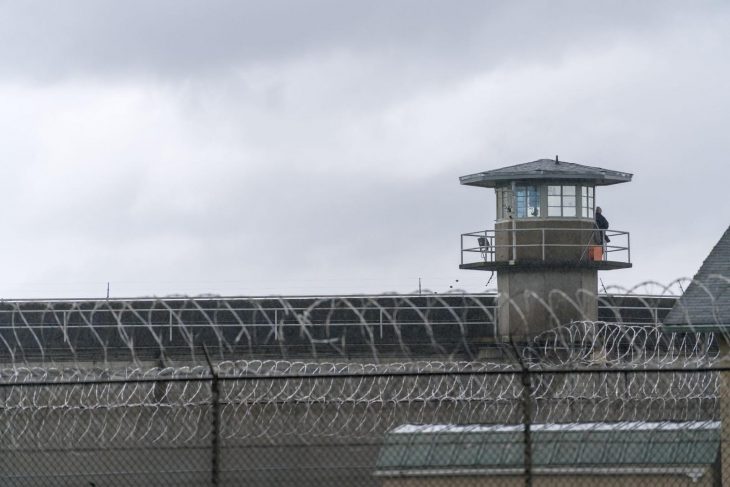
According to the National Alliance on Mental Illness, around 20% of the general prison population in the United States experience some form of mental illness; in the criminal population, it is closer to 60%. The challenges faced by those suffering from mental illness are often the reason they end up in prison and can lead to a lifelong cycle of incarceration if they don’t receive adequate treatment while in the justice system.
If people in prison who need serious help do not get it, everyone loses; their families are affected, prison populations skyrocket, and American tax dollars are wasted. Interventions that work can change someone’s life overnight and can be the reason they leave the justice system for good.
Colorado’s Growing Mental Health Concerns
The beautiful state of Colorado has many great features to brag about, from mountains to rivers; however, its incarceration rate is no bragging point. With 556 people incarcerated per 100,000 (including correctional facilities, immigration detention centers, and juvenile justice institutions), Colorado locks up a higher number of people than almost any other democracy on earth. For comparison, the United Kingdom has an incarceration rate of 134 prisoners per 100,000 people.
These numbers alone show how a relatively sparsely populated state has a big problem, further compounded by reports that 39 per cent of inmates have moderate to severe mental health problems.
Changing the System
Up until now, mental health care in the justice system has been disjointed and often lacking. Programs like the Behavioral Health Administration and co-responder models pair mental health professionals with law enforcement to provide immediate assistance during crises. The state has established specific mental health courts to offer alternatives to incarceration by focusing on treatment and rehabilitation.
Despite these efforts, challenges remain, including long wait times for mental health evaluations and limited access to community-based services, hence why continued legislative efforts are so needed to bridge the gaps and ensure comprehensive support for mentally ill people within the adult and juvenile justice system.
Alongside policy change, Colorado will likely need far more professionals with advanced education in mental health, such as those with an online Masters in Mental Health Counseling, who can play a crucial role in addressing the mental health crisis.
Problems, Solutions, and Policy Changes
While the picture may seem bleak, change is on the way. Colorado lawmakers have been working on a raft of new legislative steps to improve care in the justice system. The first bill is aimed at creating a system of ‘deflections’ for ‘ justice-involved youth.” This means many youths could be deflected toward community-based services that can care for them more effectively than the current prison-based alternatives.
The second proposed bill contains a raft of proposals aimed at addressing the mental health crisis that could become mandated actions. The legislation asks the Department of Public Safety (DPS) and the Behavioral Health Administration (BHA) to form a stakeholder group to identify available resources and model programs for effective crisis response.
The bill also directs the Department of Health Care Policy and Financing (HCPF) to analyze reimbursement gaps and shortages in the behavioral health crisis response system. Someone has to pay, and the bill includes measures to ensure adequate reimbursement for inpatient mental health care and treatment. At the same time, healthcare facilities will be required to report on their capacity to provide behavioral health services to avoid breaking overburdened health systems and workers.
The fourth bill on the table establishes a grant program to incentivize jails to provide complementary behavioral health services, such as motivational enhancement therapy and meditation, at no cost to inmates. The Behavioral Health Administration will oversee the program, aiming to improve mental health care in jails and study its impact so positive outcomes can be replicated elsewhere.

Changes to the System
The proposed system of diversions for certain offenses could have a huge impact on the prison population and offenders in multiple ways. Firstly, by channeling offenders away from prison, the scarce resources that prisons have can be used for others without stretching them to a breaking point. Secondly, those who are diverted can get care through community groups, justice initiatives, and public health systems, all of which are easier to access and have greater capacity to deal with mental health issues.
Funding is critical, but knowing what to fund with limited resources is even more important. The second and fourth bills proposed both establish systems to check what is working well and fund it while limiting funding to systems that are not measurably improving mental health outcomes.
At-Risk Groups and How They Benefit
The unfortunate fact is that certain populations face a much greater risk of entering the justice system due to untreated mental health challenges. Youth face the greatest amount of challenges and often come from marginalized communities. Other groups, like the homeless, are disproportionately affected. For these groups, untreated mental illness often can drive criminal behaviors that see them end up in the justice system.
Colorado’s proposed legislation directly addresses these groups. Justice-involved youth, for example, could benefit from diversion programs that redirect them toward community-based care rather than incarceration. This approach aims to provide early intervention, breaking the cycle of criminal behavior and untreated mental health issues. Similarly, programs targeting adults focus on ensuring access to behavioral health services, particularly for those in underserved areas or with limited resources.
The Future of Mental Health Care in Colorado and Beyond
The problems are big, but the proposed changes are a great step towards solving at least some of them. At-risk groups can be helped while avoiding incarceration entirely; resources could be used far more efficiently through programs that use research to evaluate what exactly is making a difference and health workers that get a more realistic workload. All in all, the challenges Colorado is facing are felt across the country. Most states have large prison populations, and the mental health problems they face are shared by so many. Hopefully, the justice system, healthcare system, and communities can work together to drive real change.
Was this page helpful?
Our commitment to delivering trustworthy and engaging content is at the heart of what we do. Each fact on our site is contributed by real users like you, bringing a wealth of diverse insights and information. To ensure the highest standards of accuracy and reliability, our dedicated editors meticulously review each submission. This process guarantees that the facts we share are not only fascinating but also credible. Trust in our commitment to quality and authenticity as you explore and learn with us.
